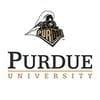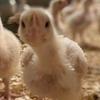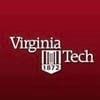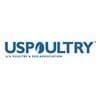Explore all the information on
Poultry management
Poultry management usually refers to the husbandry practices or production techniques that help to maximize the efficiency of production. Sound management practices are very essential to optimize production. Scientific poultry management aims at maximizing returns with minimum investment. A carefully controlled environment that avoids crowding, chilling, overheating, or frightening is almost universal in poultry farming. Cannibalism, which expresses itself as toe picking, feather picking, and tail picking, is controlled by debeaking at one day of age and by other management practices. The feeding, watering, egg gathering, and cleaning operations are highly mechanized. Birds are usually housed in wire cages with two or three animals per cage, depending on the species and breed, and three or four tiers of cages superposed to save space. Cages for egg-laying birds have been found to increase production, lower mortality, reduce cannibalism, lower feeding requirements, reduce diseases and parasites, improve culling, and reduce both space and labour requirements.
The brooding area of most broiler houses requires a heating system capable of providing between 40 and 60 Btu's/hr to maintain an air temperature in the low 90's during cold weather. For instance, a 54' X 250' brooding area would typically require a heating system capable of producing between 675,000 BTU/hr (54' X 250' X 40 BTU/hr = 540,000 BTU/hr) and 810,000 BTU/hr (54' X 250' X 60 BTU/hr = 810,000 BTU/hr) depending on climate and house...
Comments : 0
Recommendations: 1
Dr. Manoj Badgujar, owner of Varadvinayak Poultry Farm, shares 35 years of hands-on experience in poultry production in Maharashtra. He explains how poultry manure can be transformed into fertilizers and biogas, solving waste disposal while creating real economic value. A clear look at why biogas and value-added fertilizers are shaping the next chapter of sustainability in the Indian poultry industry. ...
Comments : 0
Recommendations: 0
A house tightness test is conducted on a 40' X 500' broiler house using a 54" tunnel fan that moves 25,900 cfm @ 0.10". With everything closed, the 54" fan generates a static pressure of 0.20", which would be considered a relatively tight house by most. Using the Poultry411 Poultry House Leakage Area Calculator, it was determined that the house had a total of approximately 12 ft 2 of cracks in the end and side walls, tunnel doors, and fan shutters. The producer...
Comments : 0
Recommendations: 0
Introduction Slow-growing broilers have recently gained traction in mainstream broiler production in some European countries due to their improved leg health and welfare compared to conventional broilers (Rayner et al., 2020; Abeyesinghe et al., 2021; Baxter et al., 2021). Slow-growing broilers have been shown to have a better gait, lower prevalence of hock burn and footpad dermatitis (Rayner et al., 2020; Baxter et al., 2021), and perform more behaviors associated with positive...
Comments : 0
Recommendations: 0


Lighting as a Strategic Tool for Optimizing Poultry House Performance
Suggested link
Description of the problem Broiler chicks are typically exposed to continuous or near-continuous light for their first week of life (Scanes and Christensen, 2019), a practice supported by many broiler management guidelines (Aviagen, 2018; Cobb, 2021). The rationale behind this approach is to provide chicks with ample time for feeding during their rapid growth phase. However, the effectiveness of continuous lighting for modern fast-growing broilers during brooding remains...
Comments : 0
Recommendations: 0
Introduction Avian metapneumovirus (aMPV) is a virus that causes respiratory and reproductive distress in chickens and turkeys. This condition leads to impaired performance and increased mortality, particularly when accompanied by secondary infections. While the virus has traditionally been downplayed in broilers, recent field investigations have highlighted the direct implication of aMPV in respiratory problems (Al-Hasan et al., 2022; Nguyen et al., 2021; Franzo et al., 2017;...
Comments : 0
Recommendations: 0
Dr Pooja Bhardwaj, General Manager at Lavizen Health Care, highlights how lower temperatures and shorter daylight hours in winter reduce egg production and quality in layer birds, making artificial lighting essential to maintain hormonal balance. ...
Comments : 0
Recommendations: 0
The poultry industry continues to invest heavily in research to deepen its knowledge of avian health and management, while identifying new strategies to strengthen overall industry performance. These innovations and related topics will be showcased at the International Poultry Scientific...
Comments : 0
Recommendations: 0
1. Introduction The poultry industry in the United States is one of the largest food industries worldwide, and chickens are commonly reared for meat production [1]. Annually, this industry generates over 10 million tons of litter to accommodate the growing number of birds necessary to meet consumer demands [2]. The poultry industry is faced with numerous challenges, the focal point being the issue of health. Several authors have posited diverse factors that impact the composition and...
Comments : 0
Recommendations: 1
Ricardo R. Guerra, Ventilation Expert at Cargill, points out the main points of his conference about Environmental Control (EC ) in Poultry India 2025 ...
Comments : 2
Recommendations: 2


Effects of <i>Ganoderma lucidum</i> fermentative products supplementation on growth performances, carcass characteristics and immune response in Native Chickens
Suggested link
When the discussion shifts to data, Mr. Onkar Singh Batra gets to the heart of the matter. He explains why data isn’t “the new oil” — in poultry, it’s the new feed. ...
Comments : 0
Recommendations: 0
Mr. Onkar Singh Batra, Proprietor of Jeeval Enterprises, shares a grounded and practical view on sustainability, financial discipline, and the mindset required to thrive in today’s poultry industry. ...
Comments : 0
Recommendations: 0


FIGAP 2026: The Scientific And Technological Exhibition Of The Livestock Industry
Suggested link
Dr. Pradeep Krishnan explains Evonik positions itself as a trusted value partner, delivering products, services, and concepts that strengthen sustainable outcomes for producers. Through precision nutrition, the company improves protein and energy efficiency, boosting performance while lowering environmental impact. ...
Comments : 0
Recommendations: 1
Dr. Pradeep Krishnan, Regional Technical Director at Evonik Methionine SEA, points out how Evonik’s analytical services bring reliable data to every step of the feed value chain. ...
Comments : 0
Recommendations: 1
.jpg&w=3840&q=75)

Maximizing Efficiency with DL-Methionine: The 65% Bio-Efficacy Advantage
Suggested link
Mr. Vaibhav Pawar, Managing Director at Swapnil Agro & Poultry, breaks down India’s biggest needs in poultry nutrition, shares how waste can become energy through rendering and biogas, and explains why amino acid profiling is the innovation the country must adopt immediately. ...
Comments : 0
Recommendations: 0
Introduction Dorsal cranial myopathy (DCM) is characterized by muscular changes, including degenerative and multiphasic lesions that specifically affect the anterior Latissimus dorsi (ALD) muscle in chickens, a superficial, bilateral muscle located in the dorsal region of the wings, which functions as an abductor of the humerus and wings [1–4]. Macroscopically, the ALD muscle region affected by DCM shows yellow, odorless, gelatinous edema under the skin [5,6]. The muscle...
Comments : 0
Recommendations: 0
Mycotoxins are known to decrease health and performance in poultry production. Their modes of action, such as reducing protein synthesis and promoting oxidative stress and apoptosis, lead to cell destruction and lower cell replacement, affecting several organs and tissues. When different stress factors collude, such as high temperatures and humidity, poor ventilation, high stocking density, and management events, the effects of in-feed mycotoxins can reach a higher level, which may...
Comments : 2
Recommendations: 0
Jonathan Cade, Chairman of the U.S. Poultry & Egg Association, explains how IPPE generates the resources that fund essential research, education programs, and industry support across broilers, layers, and turkeys. He highlights the organization’s role in advancing animal health, productivity, and training the next generation of professionals who will shape the future of the poultry sector. ...
Comments : 0
Recommendations: 1


Updated Vitamin Requirements Across Species: Microvit® Nutrition Guide
Suggested link
In this Engormix interview, Nath Morris, President of U.S. Poultry & Egg Association, shares his expectations for IPPE 2026. ...
Comments : 0
Recommendations: 1
Jonathan Cade, President of Hy-Line International, shares how the company has developed a new egg layer variety tailored to India’s climate, market needs, and production systems. He also speaks about Hy-Line’s commitment to support India’s rapidly evolving layer industry with genetics built for long-term success.
...
Comments : 0
Recommendations: 1






.jpg&w=3840&q=75)


.jpg&w=3840&q=75)









.jpg&w=3840&q=75)














